
A masked Palestinian man in a Gaza tunnel.
No casualties were reported in either operation, which came after an explosive device was detonated near the Gaza border with Israel, the latest in a string of such incidents.
Israel’s military said the operation to destroy the tunnel involved new technology it has been developing to detect them.
“Our policy is to act resolutely against any attempt to harm us and systematically eliminate the tunnel infrastructure and we will continue doing so,” Israeli Prime Minister Benjamin Netanyahu said in a statement.
Also Read: Israel Issues 30 Demolition Orders Against Palestinian Homes in East Jerusalem
Hamas, the movement that runs the Gaza Strip, called Israel’s actions an attempt “to scare the people” and head off planned protests along the border beginning later this month.
Israel “bears all the consequences of the escalation,” Hamas spokesman Fawzy Barhoum said.
Beginning on March 30, Gazans are planning to erect hundreds of tents near the Israeli border in a six-week show of support for Palestinian refugees.
Regarding the overnight operations, Israeli military spokesman Jonathan Conricus said Hamas had been digging the tunnel to link up with an older one in the south of the Palestinian enclave.
Also Read: Israeli Army Reaffirms Ceasefire After Killing Over 100 Civilians in Gaza
The new tunnel had not reached Israeli territory but was within a few hundred meters of the border fence, near the Kerem Shalom goods crossing and in the area of the city of Rafah in the Gaza Strip, he said.
The older tunnel did “partially” reach into Israeli territory, but had been discovered and cut off in 2014.
Conricus said the recent Hamas work was an attempt to join up with the part of the older tunnel that “they thought could still be usable.”
Israel had been monitoring the work before the operation, he said.
Also Read: Hamas Accuses Israel of Blocking Recovery Efforts for Soldiers’ Bodies in Gaza
An unspecified material was injected to thwart the work and explosives were not used, he said, declining to elaborate further.
A spokesman for Hamas said the military was “marketing fake achievements” to boost the morale of soldiers and Israelis living near the enclave.
Gaza underground complex bombing
Israeli soldiers carried out the operation from the Israeli side of the border fence, Conricus said.
Also Read: 279 Israeli Soldiers Attempted Suicide During Gaza War
He did not describe in more detail what he said was an underground facility struck in the air raid in the central Gaza Strip.
“It was a subterranean complex, a military complex,” he said.
Resident Amal Malaka spoke of her fear during the strike in Gaza City.
“We heard the sound of shelling, the whole of the house shaking and the windows too,” she told AFP.
Also Read: Israeli Strikes Kill 63 Palestinians, Including 24 Children, in Gaza
“My children were afraid and the girls fell down from the bed.”
Late Saturday, an explosive device went off in the northern Gaza Strip near Israel’s border fence, the army said in an earlier statement, with no casualties reported.
Israel had already retaliated once in the immediate aftermath of the explosion, with tanks targeting a Hamas observation post.
According to Palestinian sources, the one person was slightly wounded by the tank first.
Also Read: Hamas Denies Role in Rafah Attack, Accuses Israel of Violating Gaza Ceasefire
Two explosive devices were detonated Thursday along the border, which had already provoked Israeli attacks on Hamas positions.
On Feb. 17, four Israeli soldiers were wounded by an improvised explosive device (IED) on the border, sparking intense military retaliation.
It was not clear who was behind the blasts, but Israel held Hamas responsible as the de facto power in the Palestinian enclave.
Israel and Palestinian fighters in Gaza have fought three wars in the past decade.
Also Read: Nine Killed in Israeli Strikes on Gaza, Violating Ceasefire Agreement
The strip has been under an Israeli blockade since 2007.
During the 2014 War, Hamas fighters used dozens of tunnels to blindside Israel’s superior forces.
Since then, Israel has been working on developing advanced countermeasures including a sensor-equipped underground wall along the 60 kilometer Gaza border, a $1.1 billion project it aims to complete by mid-2019. (T/RS5/RS1)
Mi’raj Islamic News Agency (MINA)
Also Read: Netanyahu Orders Immediate, Powerful Strikes in Gaza Despite Ceasefire





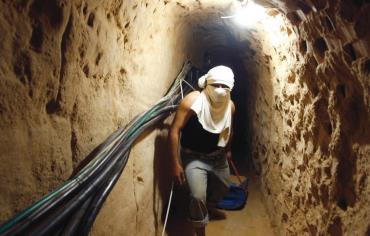







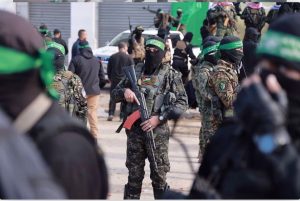

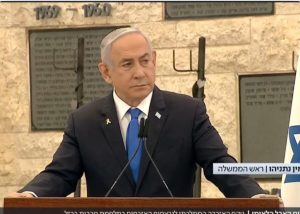

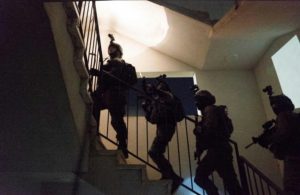




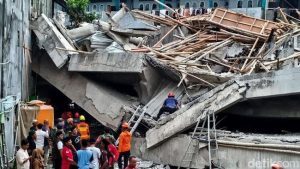








 Mina Indonesia
Mina Indonesia Mina Arabic
Mina Arabic